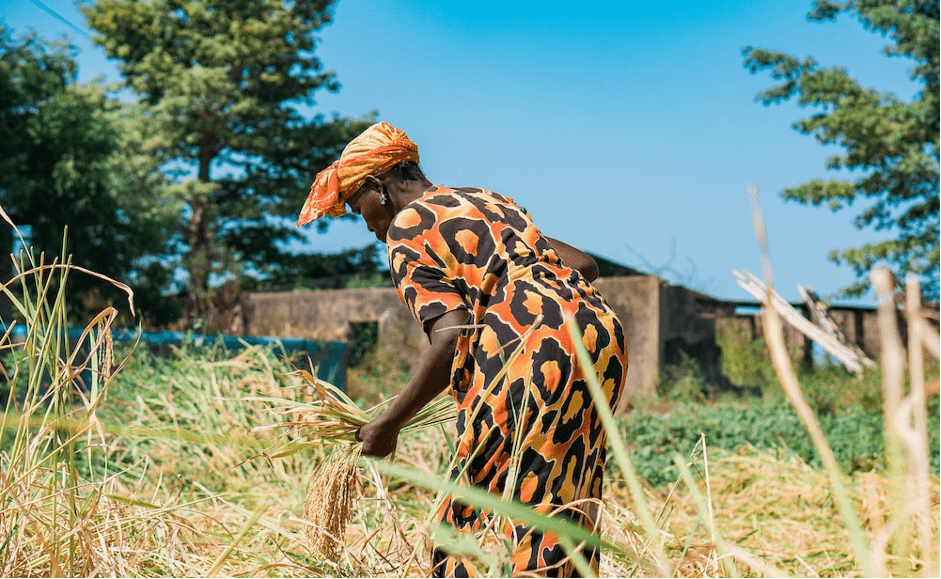The African Development Bank (AfDB) carries out actions in favor of the African continent and publishes an annual report titled “Annual Review on Development Effectiveness” (ARDE). This report highlights the contrast between a post-pandemic economic growth recovery and a slowdown in Africa’s GDP growth in 2022. The causes include climate change and the war in Ukraine, which are altering development patterns and inflating the energy and food bills of the African continent. Additionally, challenges such as poverty, famine, drought, and infrastructure deficits contribute to the situation. The authors of the report dedicate a chapter to food security as a driver of progress and emphasize the necessary transition of the African food system to set the continent on the path to sustainable development.
The African Development Bank Group aims to achieve sustainable poverty reduction on the continent through economic growth. In 2021, the Group financed 196 operations totaling $5.86 billion. It relies on the expertise of its three member institutions to support its strategy.
- The African Development Bank (AfDB);
- The African Development Fund (ADF);
- The Nigeria Trust Fund (NTF).
The African continent has abundant natural and human resources, but its economies lack robust value chains. The continent still faces challenges in terms of mobility, education, and overall service provision to the population and farmers.
The agri-food production in Africa also falls below its potential. More than half of the world’s arable land is in Africa, yet the continent remains largely dependent on imports and suffers from food shortages. It exports low-value commodities and imports processed products that become unaffordable for the majority.
Accelerating African agricultural production is a central objective of the Bank’s programs, aiming to address the growing agricultural trade deficit, which amounted to $38.7 billion in 2022.
In 2022, cereal yields were 1.65 tons per hectare, compared to the global average of 4 tons per hectare, and water stress remains a significant barrier to increasing yields. Farmers need support in improving their fertilization, irrigation techniques, and overall agricultural practices. The Russo-Ukrainian conflict has disrupted the farmers’ access to nitrogen, potassium, and phosphorous inputs, which have become unavailable or too expensive.
The recovery and high demand have led to a surge in prices, preventing the poorest from accessing essential commodities such as wheat, maize, and sunflower oil, and hindering small-scale farmers from restarting agricultural production. After reaching its peak in March 2022, the FAO Food Price Index remains at a high level, as indicated in the graph below.

Source : afdb.org
Today, agricultural gains are mainly generated through the informal sale of raw commodities. Their transformation remains occasional and isolated, even though it has the potential to generate more income, create employment, and lend credibility to the agricultural sector among investors.
Enabling sustainable productivity
To stem the food deficit, the Afri-Dev Bank (AfDB) launched in 2022 the African Emergency Food Production Facility. With a budget of $1.5 billion, this emergency program supports 20 million farmers in adopting resilient and more productive agricultural practices. The aim is to produce nearly 40 million tons of staple crops (wheat, maize, or soybeans). The program, implemented in collaboration with the AU, the United Nations, and other public or private institutions, is structured around four key pillars:
- Supply of seeds and fertilizers;
- Support for storage and marketing of produced goods;
- Loans to cooperatives and wholesalers for the purchase of inputs;
- Collaboration in the establishment of incentive policies for the adoption of more productive practices.
The Bank has already contributed to the improvement of 1,682 km of African road infrastructure. It also promotes agricultural technologies by supporting the African initiative Technologies for African Agricultural Transformation (TAAT) alongside the Bill & Melinda Gates Foundation. This program aims to introduce innovative technologies in farms producing priority staple crops.
For example, the productivity of Ethiopian wheat has increased from 2 to 4 tons per hectare since 2019 by introducing new irrigation techniques combining spring water and rainfall. In the 2022-2023 season, Ethiopia is expected to achieve self-sufficiency and even have the potential for export. Similar experiences are being conducted in Sudan, Gabon, Niger, Angola, and Zambia.
In Liberia, the Bank is helping small-scale farmers improve their incomes through the Smallholder Agricultural Productivity Enhancement and Commercialization (SAPEC) project. Through local associations, beneficiaries (organizations, small-scale farmers, extension agents) are supported and trained in food processing. The value addition of products and the establishment of supply chains between production areas and markets have improved the livelihoods of families.
Through these various initiatives, farmers adopt water-efficient practices, another pillar of food security.
The Mobilization of Water for Food Security in the Maradi, Tahoua, and Zinder Regions (PMERSA-MTZ) project, supported for eight years by the African Development Fund and the Spanish Agency for International Cooperation for Development, has improved agricultural production in three regions of Niger by utilizing aquifer resources.
- Development of 18,800 hectares of agricultural land
- Creation of 10,000 wells
- Construction of 273 km of roads
The institutions have involved the populations in data collection through a playful mobile application. After eight years of implementation, beneficiaries observe that they have easier access to food, education, and healthcare.

Source : afdb.org
Facilitating the valorization of food commodities
In order to establish new value chains, stakeholders must devise energy and water-efficient processing methods, such as the project implemented in Uganda that promotes the use of solar panels for refrigeration and food processing. This initiative promotes sustainable valorization of products and also enables valorization in areas without access to electricity.
A number of projects also focus on creating infrastructure for the processing and valorization of food commodities. For instance, the Common Program for Agro-Industrial Parks (CAAP) plans to construct five regional hubs located in key African regions, with the aim of transforming rural areas into economic zones that generate employment opportunities.
In collaboration with African governments and private operators, the Bank is involved in defining the implementation model for these agro-industrial zones. The initial stages of agro-industrialization have commenced, and further projects are under consideration. Overall, around twenty African countries will receive support from the Bank in their participation in the CAAP Program.
These new areas of human activity cannot disregard environmental concerns and the goals for mitigating climate impacts set forth by other programs of the Bank:
- Participatory Forest Management Program
- Non-Timber Forest Products Development Program
- Upgrade Program for 2,700 stoves…
Global events have greatly disrupted an already vulnerable Africa. The Bank is supporting the continent to recover from these crises and to address its own challenges, such as climate change, poverty, and internal conflicts.
Source : afdb.org




